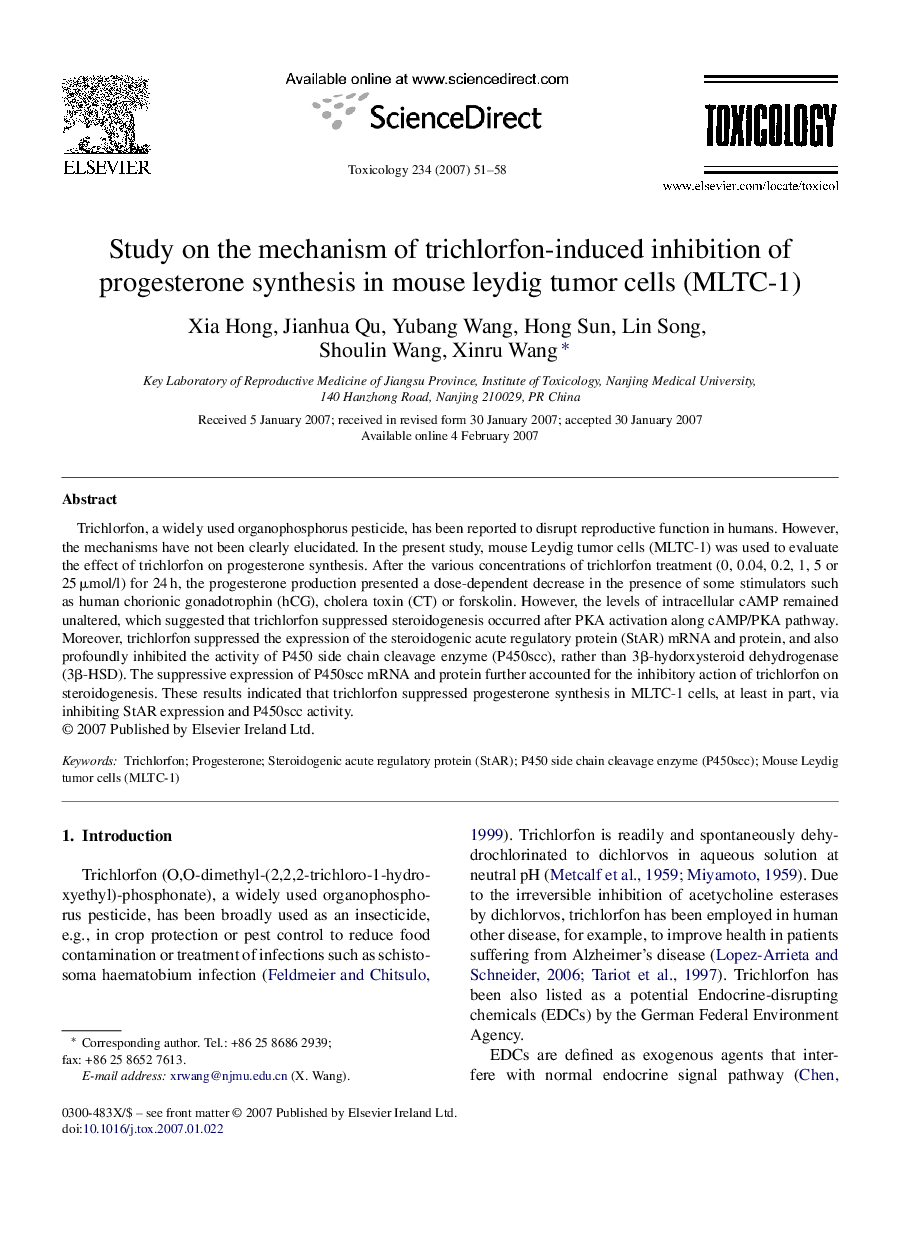| کد مقاله | کد نشریه | سال انتشار | مقاله انگلیسی | نسخه تمام متن |
|---|---|---|---|---|
| 2597507 | 1562422 | 2007 | 8 صفحه PDF | دانلود رایگان |

Trichlorfon, a widely used organophosphorus pesticide, has been reported to disrupt reproductive function in humans. However, the mechanisms have not been clearly elucidated. In the present study, mouse Leydig tumor cells (MLTC-1) was used to evaluate the effect of trichlorfon on progesterone synthesis. After the various concentrations of trichlorfon treatment (0, 0.04, 0.2, 1, 5 or 25 μmol/l) for 24 h, the progesterone production presented a dose-dependent decrease in the presence of some stimulators such as human chorionic gonadotrophin (hCG), cholera toxin (CT) or forskolin. However, the levels of intracellular cAMP remained unaltered, which suggested that trichlorfon suppressed steroidogenesis occurred after PKA activation along cAMP/PKA pathway. Moreover, trichlorfon suppressed the expression of the steroidogenic acute regulatory protein (StAR) mRNA and protein, and also profoundly inhibited the activity of P450 side chain cleavage enzyme (P450scc), rather than 3β-hydorxysteroid dehydrogenase (3β-HSD). The suppressive expression of P450scc mRNA and protein further accounted for the inhibitory action of trichlorfon on steroidogenesis. These results indicated that trichlorfon suppressed progesterone synthesis in MLTC-1 cells, at least in part, via inhibiting StAR expression and P450scc activity.
Journal: Toxicology - Volume 234, Issues 1–2, 5 May 2007, Pages 51–58